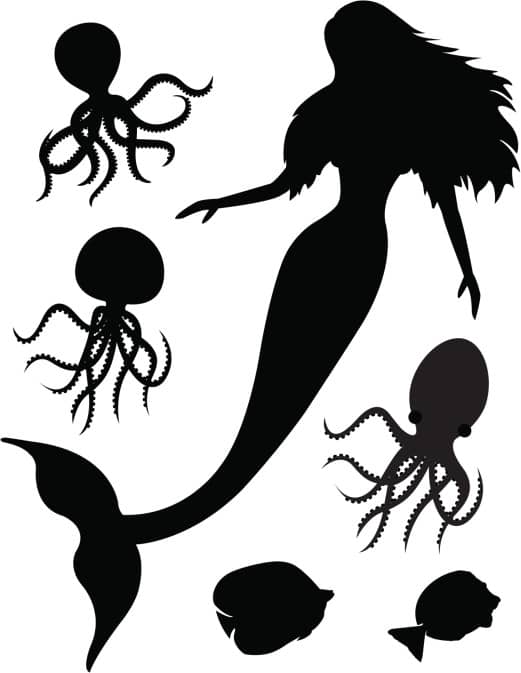 Since the sea is a big part of cultural life in Greece, it makes sense that many of the gods, goddesses, and creatures in Greek mythology originated in the water. Though most of us think of the Olympian gods and goddesses when we recall Greek mythology, the gods and goddesses of the sea, or Theoi Halloi, were also important parts of the tradition.
Since the sea is a big part of cultural life in Greece, it makes sense that many of the gods, goddesses, and creatures in Greek mythology originated in the water. Though most of us think of the Olympian gods and goddesses when we recall Greek mythology, the gods and goddesses of the sea, or Theoi Halloi, were also important parts of the tradition.
Poseidon
Poseidon was the main deity who controlled the sea. As the brother of Zeus and Hades, he was very powerful. Every sea creature and sea god and goddess fell under Poseidon’s domain. In some depictions, Poseidon is actually represented as a merman. In others, he is shown as an older man with long white hair and a white beard.
He is always shown with his trident, a powerful weapon that was forged by Hephaestus, the blacksmith of the gods. He was also referred to as the “earth shaker” because of his ability to start earthquakes. He was mainly part of the Olympian tradition. Some of the following gods and goddesses predated the Olympians.
Aigaios
The Ancient Greeks attributed storms that originated in the sea to the god, Aigaios. Though he wasn’t a Titan, he was one of their allies. The Aegean Sea was named after him. He had a son named Briareos who had a hundred hands and fifty heads.
Aeolus
He was in command of all the winds associated with storms, including sea storms. Aeolus kept the winds hidden on a floating island, only to be released when the gods told him to do so. In the case of sea storms, he awaited Poseidon’s word, since he was the sea’s main deity.
Keto
Also referred to as Ceto, she was the goddess of sea monsters. She was the daughter of Gaia and Pontus, who was the god of the sea before Poseidon had that role. Pontus, Gaia, and Keto all predated the Olympian gods and goddesses. Keto’s name was derived from an Ancient Greek word meaning “whale”.
Oceanids
The Oceanids were sea nymphs. Though they weren’t technically considered goddesses, they were minor deities who cared for the natural world. The Oceanids’ domain was the sea. They were the children of Oceanus, the Titan god of the sea.
Palaemon
Palaemon was the god who protected sailors, fishermen, and anyone else embarking on a sea journey. He was always pictured as a small boy who was riding on the back of a dolphin. However, he wasn’t always Palaemon. Before he became a god, his name was Melicertes. Hera drove his father, Ino, to madness. Ino leaped into the ocean with Melicertes, who then became a god when he entered the sea.
Thalassa
The Modern Greek word for sea is “Thalassa”, which also bears the name of this ancient sea goddess. Thalassa predates the Olympan gods and goddesses and she was the mother of all the fish in the sea. She was often associated with Pontus, another sea god.
In Ancient Greece, if it weren’t for the sea, many people wouldn’t have had a chance to make a living. The fact that there were so many sea gods and goddesses is a reflection of the culture.

